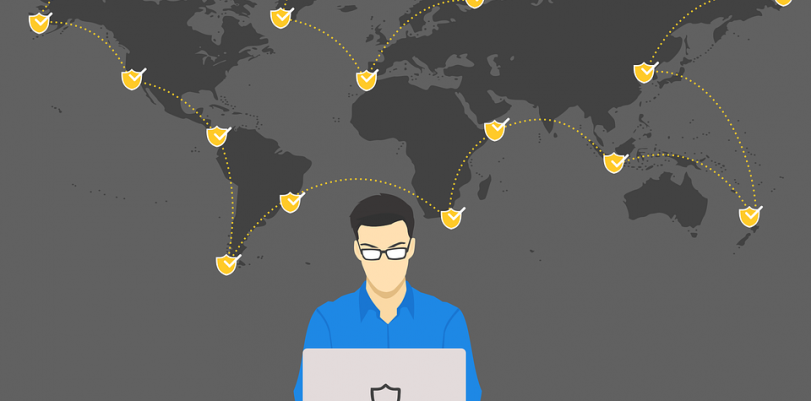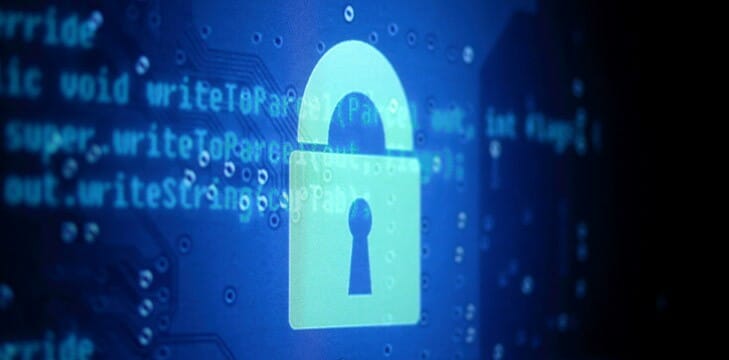The internet is full of good things: online streaming services to watch movies, series, TV shows and live sporting events, news channels, cooking channels, kids’ channels, and much more. You can have an email account, manage your finances, and connect with the world and your friends through social media. It sounds like a fantasy, where all is good, and nothing is wrong.
That’s where you are wrong. While the web is a beautiful invention and development, you should know that many threats linger out there in the digital world. Your precious PC, Mac, Android phone or iPhone, not to mention your tablet, can be threatened at any moment if you don’t protect them from threats and hazards.
Hackers represent a risk when navigating, especially in public Wi-Fi connections. The Internet is full of people with the talent and dubious morals to pounce when you leave your credit card information without protection, and they will have no hesitation at the moment of cloning it.
VPNs, or Virtual Private Networks, represent a great way to ensure your data and personal information get the protection they need. It creates virtual tunnels in which your traffic travels through servers without no agent having access to it.
But it is fair to wonder: are VPNs safe? Can they be trusted by users who continuously interact, share data, upload and download torrents, and watch movies and series via streaming? Or can they fail in their goal of protecting every asset you may have?
What is a VPN?
First, let’s establish what a VPN is. A VPN is a Virtual Private Network, meaning that it is a system that encrypts all of your data and traffic and sends them through secure servers that do not allow any intervention or supervision of third parties such as governmental institutions, hackers, malware specialists, companies and even your Internet Service Provider.
A VPN is virtual because the “tunnel” in which your traffic travels is intangible and simulated; and it is Private because no one will have access to its information and data, including your browsing history and IP address (the protocol with which anybody on the Internet can locate you by geographical zone). It is also a network because it involves nets, connections, requests, complicated setups, and other elements.
VPNs will hide your IP address and change it temporarily at your convenience. For example, if you want to be anonymous on the internet, you can request a shared IP address from a pool of existing ones, making it very difficult to third parties to track your activity because you can constantly connect and disconnect and the system will give you a new IP each time. Or, you may want accessibility, which means that you may pay a little more to obtain a static IP address to stream online and take advantage of higher connections speeds.
IP security (IPSec), Layer 2 Tunneling Protocol (L2TP)/IPSec, Secure Sockets Layer (SSL) and Transport Layer Security (TLS) are some of the encryption technologies that Virtual Private Networks use to perform its activities. So: are VPNs safe? They indeed are with all those resources available.
What are the main benefits of a VPN?
- They are versatile: you can take your pick between shared IP VPN or static IP VPN, depending on your current needs.
- They can help you access or unblock content that websites restrict for locations reasons.
- They enhance your privacy.
- They protect your data, traffic, passwords and key information.
- They can help you stream content from wherever you are.
- They can survive when a website has Transparent Proxies or DNS Hijacking.
Are VPNs safe?
The most logical answer, based on empirical evidence, is yes. In general, VPNs are not only safe, but they are completely 100% legal and represent the best alternative to ensure that nobody has access to your data and browsing history, and also your location.
But, like all things in the world, “it depends.” Competition is fierce in the field of online security, privacy, and VPNs, and some of the alternatives offer its clients terrific security measures that bring them peace of mind when browsing the web, while others are not so reliable and are known to have some leaks here and there.
But the best VPNs are reliable and accountable and offer security measures such as layering with OpenVPN 256-bits of encryption, implementing a “kill switch,” IKEv2/IPsec, OpenVPN, PPTP, L2TP, IPSec and other protocols.
As it often happens with many things in the world, paid VPNs are usually better at offering security guarantees to its customers, so carefully inform yourself about each option’s features and pay for a quality provider. It won’t be much.
Can the VPN server’s ISP track my activity?
You have an Internet Service Provider (ISP). Your VPN provider also has an Internet Service Provider, So the short answer here is, to avoid any further confusion, that your ISP does not get to see any of your traffic or online interactions, but your VPN provider’s ISP can have access to it. But don’t worry! There are ways to go around this minor issue.
- No logs policy: which secures anonymity even when IPS get their noses in your activity because, by company policies, some VPN will not have any logs that can help anybody if they can track you down: there will be no data to associate with you!
- Anonymous pay: You can have the option not to give your name to your VPN provider when you are paying for its use, to avoid being identified in some way in the future. You can pay with Bitcoin or PayPal without having to give your name.
- Shared IP addresses: the best and most efficient way to provide anonymity to its users is for VPNs to assign shared, or dynamic, IP addresses. Since there are many people on the same network, it will be tough for any third parties to locate you. Anonymity guaranteed! Also, even if you disconnect and connect right back, chances of getting a different IP address are very high.
Safe VPNs to Use
Hundreds of VPN providers populate the online market. However, TorGuard leaps and rises above the rest when it comes to security. It has adequate measures that make their clients feel that their traffic is safe and protected, and also, they allow as many as five different devices to connect at the same time. TorGuard has servers in some of the most remote places on the planet, and its customer service is one of the strongest out there.
Other safe alternatives to TorGuard are PIA and IPVanish. These are all paid options, but their prices are not that high, varying from $3 to $10 per month.
 |
 |
|
|---|---|---|
| Multi-platform Compatible | ||
| 256-AES Encryption | ||
| PRICE | $5 for 1 month with code "best10VPN" | $6.95 a month |
| Website Rating | 9.9 | 8.8 |
| 24/7 Live Chat | ||
| Residential / Dedicated IP for permanent streaming access | ||
| Has Mobile App + PC / Mac Support | ||
| Stealth VPN / Advanced Obfuscation techniques | ||
| Visit VPN Provider | Visit TorGuard | Visit PIA |
The “Kill switch”
A “kill switch” is a tool that many of the current, top VPN providers offer to their clientele. It blocks internet access in the case that the encrypted connection you put together via your VPN drops. This is a last resort measure that keeps your data protected in case of connection breakdowns.
In conclusion, it is fair to wonder: are VPNs safe? It is a legitimate question because some people seem to think that ISPs and the government will find a way to track your traffic and activity, and others may believe that VPNs are illegal and thus they do not see them with kind eyes.
Those are myths fueled by ignorance. While it is true that some people take advantage of VPNs features and benefits to use them for obscure activities, the system itself is perfectly legal and was designed to enhance users’ protection and privacy levels.
To answer the critical question in the users’ hearts: Yes, VPNs are safe. The best alternatives available provides their customers with efficient security protocols and measures that give them guarantees that their traffic is protected and their IP, hidden.

